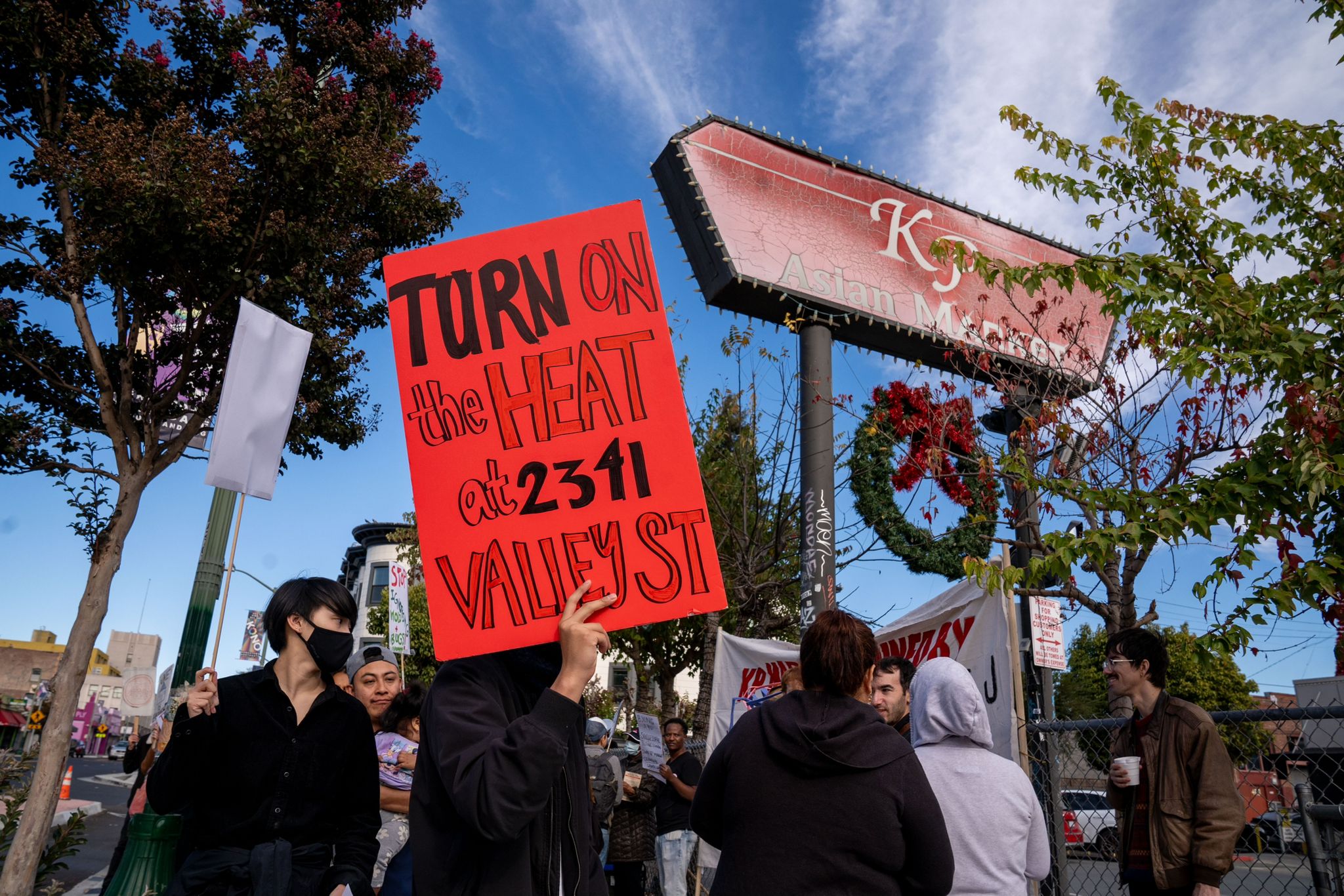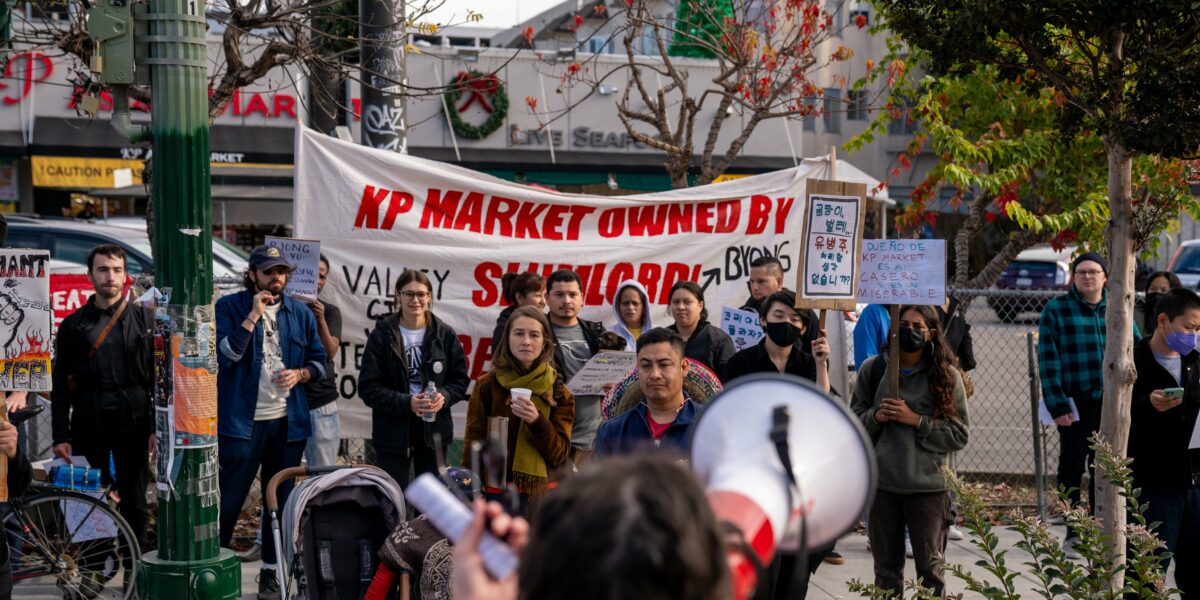Filed under: Action, Housing, Pacific

Report on recent action by tenants in the Valley Street Tenant Council and Tenant and Neighborhood Councils in so-called Oakland, CA.
Oakland, CA — On Sunday, Nov. 26, the Valley Street Tenant Council and Tenant and Neighborhood Councils carried out a noisy picket at KP Market, owned by landlord Byong Yu.
A crowd of some 75 tenants, protesting the landlord’s eviction-via-disrepair campaign, marched from 2341 Valley Street to the Telegraph Avenue grocer and picketed throughout the afternoon.
Waving handmade picket signs, we distributed hundreds of leaflets in English, Spanish, and Korean demanding dignified housing, and dropped a banner from the rooftop of 2341 Valley St.
“If something is broken, we have to fix it because they won’t show up,” said Gabriela, who has lived with her son at Valley St. for 12 years. “We need dignified housing to raise our children.”
“We are here in protest with the community because of all the irregularities, like the heat we don’t have,” said Antonia, another council member picketing with young children. “Last year was the coldest, and we had a newborn. It’s inhumane that they do this to us, and won’t respond.”
The council has collectively petitioned the Oakland rent board (RAP) over Yu’s systematic reduction of services at 2341 Valley St., and their hearing is scheduled for Monday, Dec. 4.
The tenant union will boycott KP Market unless landlord Byong Yu meets the tenants’ demands for dignified housing conditions, and ends constructive eviction at 2341 Valley Street.
In addition to owning the popular neighborhood grocer, Yu is a major Oakland landlord who enjoys a powerful role with the Koreatown Northgate (KONO) business improvement district.
Just behind his flagship business, however, Yu is subjecting his tenants at 2341 Valley Street to severe and protracted habitability issues in an attempt to empty the 41-unit apartment building.

The multilingual, working-class tenants of this rent-controlled housing have long complained to management and city officials about leaks, pests, security concerns, mold and lack of heating.
In the past two years, inspectors have issued Yu four notices of violation for missing radiators, chronic leaks, mold, infestation, and crumbling drywall. Still, Yu has refused to make repairs. (See conditions documentation.)
Now, more than 20 units in the building sit empty.
Early in the pandemic, Yu’s tenants formed the Valley Street Tenant Council in affiliation with Tenant and Neighborhood Councils (TANC) to collectively resist the landlord’s constructive eviction, demanding repairs and dignified housing conditions for their families and neighbors.
“This isn’t a boycott — yet,” read the tenant union’s picket handout. “To Byong Yu, our apartments are worth more with no one living inside. But we won’t be evicted!”
Formal evictions are soaring since local politicians lifted pandemic-era restrictions, and landlords such as Byong Yu persist in using harassment and disrepair to displace tenants.
Landlords disproportionately mark working-class people of color for eviction. And whether or not the eviction proceeds through the court system, landlords often recruit the cops for assistance.
Across the Bay Area, tenants have organized into councils and associations to pressure landlords directly for repairs and rent reductions, and to fight against all forms of eviction.
With collective power, tenants can challenge the institutional drivers of gentrification — landlords and the real-estate industry, and all of their partners in office — for control over our own lives.





